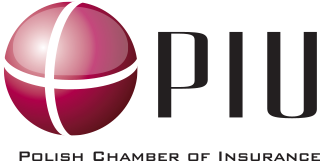
More than 80% of insurers believe that the future of the market belongs to organisations that have invested in innovation and digitalisation, demonstrated in the ‘Digitalisation of the insurance sector in Poland’ report, prepared by Accenture for the Polish Insurance Association. Work on the implementation of smart home and smart city technologies, which enable, among other things, preferential valuation of premiums and better tailoring of offers to client’s needs, has already begun.
Digitalisation –Polish insurers’ strategies
In a similar way to their foreign counterparts, Polish insurers focus their digitalisation efforts client relationships and internal processes, as shown in the report prepared by Accenture. On the basis of the study conducted for the Polish Insurance Association, three types of companies operating in the insurance market were identified, taking account their approach to digitalisation, innovation, client experience and the implementation of new technologies in various business areas.
The first group comprises the so-called ‘pragmatic traditionalists’, who are focused on existing channels and solutions. Nonetheless, they are interested in new trends, so that they are able to smoothly adapt to market changes, if necessary. They claim that the role of new technologies is to relieve agents and improve their work. Intermediaries could devote the saved time to building relations with clients and increasing sales. This would help to reduce operating costs and thereby enhance company competitiveness.
In contrast, the second group, so-called ‘digital followers’, constantly analyses changing clients’ needs and new technologies. They are frequently the ones to set trends, by implementing innovative solutions in all areas, even in those where demonstrating obvious financial benefits in the short term is difficult. They invest in multichannelling, artificial intelligence and analytics.
The last group comprises so-called ‘diversified partners’, who use digital initiatives on a smaller scale, often alongside their core activity. Their primary goal is to acquire knowledge and experience and also to prepare for the creation of or participation in ecosystems with other digital players. They mainly focus on cooperation with their business partners, by building interfaces adapted to their systems. ‘Polish insurance companies have taken an intelligent approach to digitalisation. Instead of investing in every technological novelty, they focus rather on initiatives and innovative ideas which are reasonable from the point of view of their business strategy and goals for the upcoming years. In their efforts, they face increasing difficulties to recruit digitally literate employees. As a result, their use of digital technologies such as artificial intelligence, cloud computing or advanced analytics is less widespread than among surveyed insurers abroad’, said Łukasz Marczyk, Insurance Industry Lead at Accenture Poland.
Important trends – smart home and smart city
‘Insurers have been keeping track of technological changes and gradually implementing them in their companies for several years. The changes are visible in new products, such as cyber insurance, but also in tools enabling better risk assessment and valuation of premiums, for example telematics solutions which use electronic sensors to transmit ongoing information, which is crucial for the object of insurance. This is one of the most important trends of digitalisation in insurance. In Italy 17% of motor insurance policies already use telematics technologies. We expect the trend to develop in other European countries. Some insurance companies introduce this type of solutions also in Poland’, explains Mariusz Kuna from the Polish Insurance Association. She adds ‘The benefits of new technologies include the reduction of loss ratio, access to data enabling better risk assessment or location of clients. The challenge faced by companies in the Polish market while implementing telematics is mainly the high cost of installation of telematics equipment in relation to the premium on civil liability insurance of motor vehicle owners (OC).
Telematics is an example of pursuing the smart city and smart home idea. It involves installing sensors on objects of insurance, cars and apartments in such a way as to enable the insurer to carry out ongoing monitoring of parameters which are crucial from the point of view of safety and risk assessment of items forming the object of insurance (apartments, infrastructure, cars). An example of this is humidity and temperature measurement in apartments. Should the measurement results show any rapid changes, it is possible to react in a quick and appropriate manner, such as sending aid if fire or flooding has been detected.
Cyber risk insurance is another innovation. The purpose of the insurance is to protect Internet users, enterprises and institutions against computer viruses, hacker attacks or fraudulent activities of employees. Many insurers are considering the introduction of this type of products in the forthcoming years. Taking into account the level of innovation of the products on offer, the majority of Polish insurers are not looking for technical novelties or new types of products. From their perspective, the improvement and simplification of their current product range is of key importance.
Increase in client satisfaction thanks to self-service
In subsequent years, more and more insurers will be trying to fully or party reduce paper documentation. Thanks to technological developments, clients will be given, among other things, a wider range of possibilities to report loss on their own. This will be done thanks to on-line forms for reporting claims, self-service portals or mobile applications (e.g. a mobile application for performing visual inspection, or sending ‘push’ notifications containing information on the status of a loss). Solutions like these have already been implemented in Switzerland by Zurich Insurance Group. This enabled the company to reduce its loss adjustment process from 52 minutes to a mere 5 seconds, which, in turn, resulted in approximately 40,000 man-hours saved per year.
Main challenges
Polish companies agree about the increasing importance of data in their organisations. An important development direction is obtaining data from new reliable sources. One of the ways of obtaining valuable information is the use of public data sets. Ensuring that data management is effected properly requires the implementation of advanced analytical solutions that are also used in other business areas, such as in risk assessment. So far, only a few Polish companies have reached an advanced level of data and analytics use.
About the study
The main aim of the study conducted by Accenture is to present the most important trends relating to the level of digitalisation of the Polish insurance market and to indicate barriers which might stand in the way of further digital transformation of the sector. The findings are based on a qualitative study which was carried out in the form of a discussion in focus groups moderated by experts from Accenture. People in charge of all areas of activity of an insurance company and holding decision-making functions in organisations were invited to join the discussion sessions. The study utilised a mechanism of dividing digitalisation-related aspects into ‘Go Digital’ and ‘Be Digital’ sections, which pertain to, respectively, the digitalisation of client experience and the digitalisation of operations inside an organisation. A total of 13 insurers were surveyed during the discussion, which makes up 73% of life insurance market coverage and 65% of property insurance coverage.
